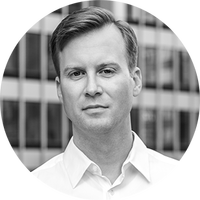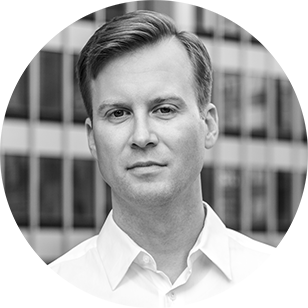Why do evangelicals oppose gun control?
It's the same sentiment that drives much of the religious right's politics: fear


A free daily email with the biggest news stories of the day – and the best features from TheWeek.com
You are now subscribed
Your newsletter sign-up was successful
For those who profess to follow the Prince of Peace, the support for sensible gun control regulations might seem like a proper Christian response to the ongoing slaughter of innocent Americans. There certainly isn't anything in the Bible that says solutions to mass violence must be limited to "thoughts and prayers."
Yet, in the wake of the deadly attacks in Gilroy, El Paso, and Dayton that left more than 30 dead, conservative religious leaders instead are doubling down on what they argue is their "God-given right" to bear arms, a message the NRA has been all-too-happy to promote. And there's no sign that the Republican Party's evangelical base is wavering on the matter. In fact, in their steady opposition to gun control, we see the same fears and fantasies that have long motivated the politics of the religious right.
That fantasy begins with the belief that guns aren't the problem. Instead, the nation's gun violence epidemic is a matter of the sinful human heart and the problem of evil, something that stricter gun laws can never solve. "The tragic shootings we've seen in El Paso and Dayton prove the reality of evil," Robert Jeffress, the Dallas megachurch pastor and friend of Donald Trump, tweeted the morning after the attacks. "Laws are important to help regulate evil but they can never eliminate evil — only Christ can transform a person's heart."
The Week
Escape your echo chamber. Get the facts behind the news, plus analysis from multiple perspectives.

Sign up for The Week's Free Newsletters
From our morning news briefing to a weekly Good News Newsletter, get the best of The Week delivered directly to your inbox.
From our morning news briefing to a weekly Good News Newsletter, get the best of The Week delivered directly to your inbox.
Of course, this laissez-faire ethos has never guided how the religious right chooses to handle other issues like, say, pornography. But by invoking the evilness of humanity, such leaders provide a theological gloss to the "guns don't kill people; people kill people" argument that has long overshadowed our national conversations about gun violence.
If anything, gun violence has provided a useful opportunity to inveigh against the issues the religious right does want to regulate. That tendency has been on full display this past week. On Fox News the day after the El Paso and Dayton attacks, Texas Lt. Gov. Dan Patrick argued that video games and social media, not guns, were to blame for mass shootings before he concluded that it was all a natural result of the nation's secularization. "As long as we continue to only ... look at God on a Sunday morning, and kick him out of the town squares and our schools the other six days of the week, what do we expect? What do we expect," Patrick grumbled, repeating the long-held view among many religious conservatives that the Supreme Court's outlawing of school prayer in the 1960s, rather than the weakening of gun laws and the proliferation of firearms in more recent decades, is the root cause of this rampant violence.
Making an even darker — but no less rare — argument, Ohio State Representative Candice Keller pointed to, in a now-deleted Facebook post, "transgender, homosexual marriage, and drag queen advocates" for causing mass shootings, the violent result, she argued, of "the breakdown of the American family."
It's outlandish, but Keller's comments show how white evangelicals' fears about liberal society's threat to the traditional heterosexual family, aided by a federal government that has legalized abortion rights and marriage equality, have shaped their positions on gun rights. From the religious right's emergence in national politics in the late 1970s, the movement has warned that an overbearing state would take conservative Christians' rights away and permanently alter their families.
A free daily email with the biggest news stories of the day – and the best features from TheWeek.com
This same paranoid fantasy undergirds much of religious conservatives' opposition to gun control. While no personal arsenal is likely to turn back the federal government's forces, many religious conservatives, especially white evangelical men, worry that any limitation on gun rights will infringe on their ability to protect their loved ones. If defending the traditional family has been a largely metaphorical concern for the religious right when it comes to abortion and gay rights, it's very much literal when it comes to guns.
That belief has tangible results and political consequences. As Christianity Today reported in 2017, 41 percent of white evangelicals own a gun — a number far higher than the average American and one that has likely grown since then. Influential evangelical leaders have supported gun ownership and advocated for its growth among fellow believers. After a gunman murdered 26 worshippers at a rural Southern Baptist church in Texas in 2017, Jeffress told Fox News he felt particularly safe preaching at First Baptist Dallas knowing that so many of his congregants brought guns with them to church. In 2015, following the massacre in San Bernardino, California, that killed 14 people, Jerry Falwell, Jr., exhorted students during a convocation at Liberty University to get concealed weapons permits and carry guns on campus. "I've always thought if more good people had concealed-carry permits, then we could end those Muslims before they walked in," Falwell exclaimed to riotous applause.
As far too many mass shootings have made clear, however, armed citizens can do little to stop the slaughter brought about by weapons of war. The gunman in Dayton, for example, was able to fire 41 shots in half a minute, killing nine and hitting 14 more in that short time before police shot him dead.
No doubt, there are heroes in these awful moments, especially law enforcement. But the imagination that "good guys" can prevent such massacres is a delusion with deadly ramifications. Around the world, various countries have shown that tough gun laws can diminish and even prevent gun violence. God help the nation that won't take similar steps for its own citizens.
Neil J. Young is a historian and the author of We Gather Together: The Religious Right and the Problem of Interfaith Politics. He writes frequently on American politics, culture, and religion for publications including The New York Times, The Atlantic, the Los Angeles Times, HuffPost, Vox, and Politico. He co-hosts the history podcast Past Present.
